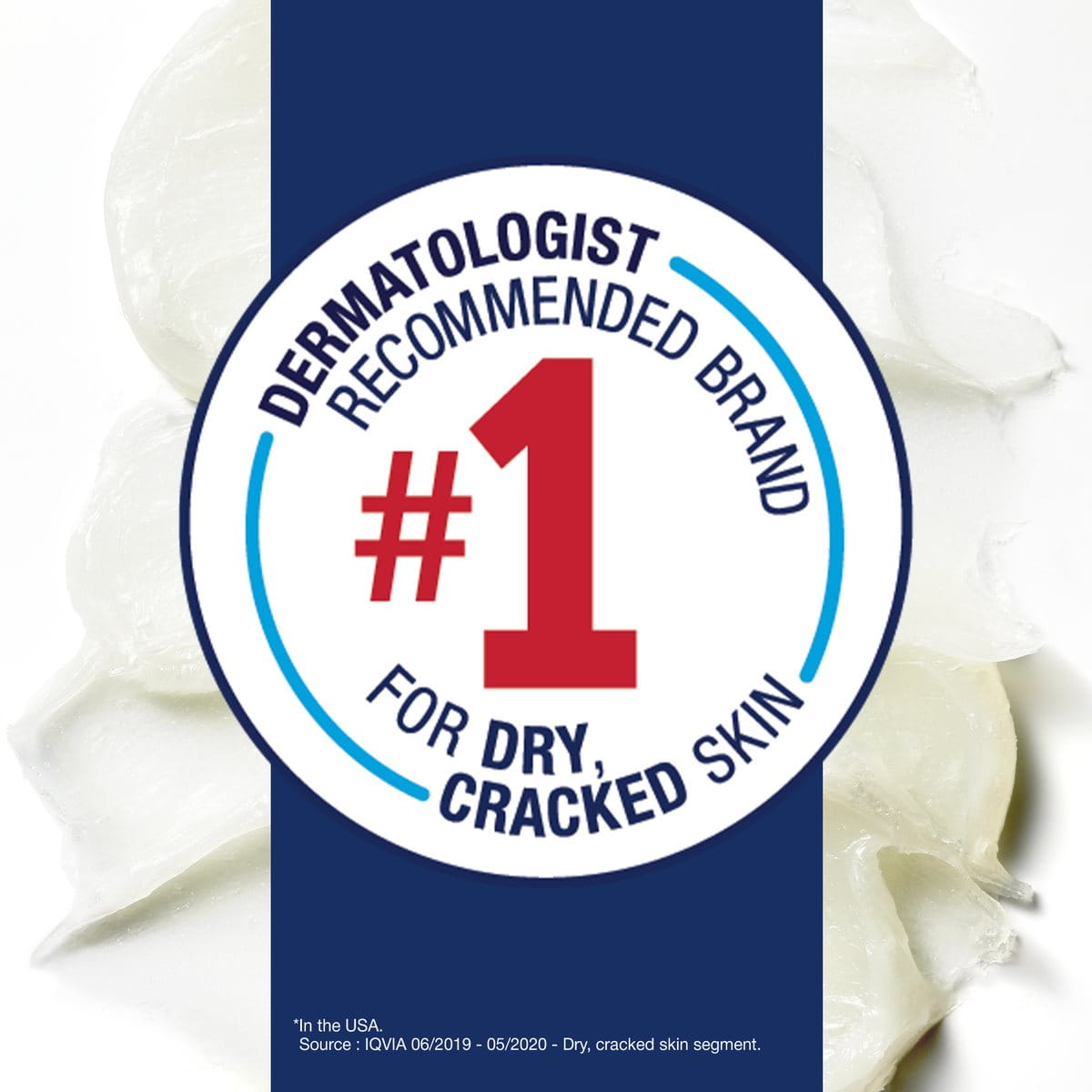Signs & Symptoms of cracked skin
Cracked skin results from dryness, but often the first signs of dryness do not cause much discomfort, so initial symptoms may go ignored. Unfortunately, ignoring earlier symptoms of dry skin can make it easy to progress to a very dry state where cracking can occur and where it’s harder to restore moisture to skin. Here are some progressive symptoms to watch for when skin is dry and may eventually become cracked:
- Dry skin feels tight and may appear slightly to moderately rough.
- As skin becomes more dry, it can become very tight, very rough, itchy, or flaky.
- Excessive dryness can cause the skin to shrink and become brittle, eventually leading to the skin cracking, especially in areas that need to flex during movement, such as the soles of the feet during walking.
Symptoms of dry and cracked body skin include:
- Extreme tightness
- Extreme roughness
- Skin cracks
- itchiness
Areas commonly affected by cracked skin
Cracked hands and knuckles
Chapped and Cracked lips
Cracked skin on the feet
As with lips, the soles of the feet also do not have oil glands. This, combined with the stress of bearing weight, and things like friction from ill-fitting shoes or prolonged contact with moisture when sweating in shoes and socks, creates a prime environment for skin to become dry, chafed, and to crack.
What causes dry, cracked skin?
External factors that can cause cracked skin
External factors that contribute to cracked skin involve any environmental or external stressor that can contribute to drying the skin and stripping the skin of its moisture. These can include:
Environmental
- Harsh weather conditions - hot, cold and dry air can disrupt the skin's moisture barrier.
- Seasonal changes - symptoms of dry skin often worsen during either the winter or summer, when temperatures and moisture levels in the air are more extreme.
- Ultraviolet (UV) exposure from the sun can damage the skin and cause it to gradually lose moisture, causing dryness.
- Working in conditions requiring frequent hand washing or exposing the skin to harsh chemicals can strip moisture from the skin.
Skin care
- Frequent washing, excessive scrubbing, or long, hot baths or showers can dry the skin.
- Using harsh soaps and shampoos can strip skin of its natural moisture.
- Failing to moisturize skin can leave skin vulnerable to dryness.
Dry and cracked skin can be caused by other external factors more medical in nature, such as side effects from diuretics or other medications. Always check with a medical professional if you are concerned a medication may contribute to dry skin.
Internal factors that can cause cracked skin
The skin's moisture balance is also influenced by genetics. Some people have more naturally oily or dry skin than others.
Age
With age, the skin produces less sebum, the natural oil that keeps skin soft. Skin becomes thinner and loses water more easily, making it easy to become very dry and cracked.
Diet
Like any other organ, the skin requires a range of important nutrients in order to function properly. Keeping the body nourished and hydrated helps to support keeping the skin hydrated.
How to care for dry, cracked skin
Cleansing cracked skin

When skin is cracked, cleansing the skin improperly can further strip skin of its moisture and make matters worse. Follow these tips to gently clean dry, cracked skin:
- Use a mild, gentle cleanser
- Avoid taking long, hot showers or baths
- For cracked skin on thick skin areas like the heels and feet, soften skin by soaking in lukewarm water for up to 20 minutes, and then gently exfoliate with a pumice stone, loofah, or scrubber to help remove calloused skin.
- After cleansing, gently pat skin dry with a soft towel. Do not scrub or rub.
- Immediately apply a generous layer Aquaphor Healing Ointment® to help soothe and protect dry skin.
Other ways to care for and help prevent cracked skin
In addition to having a good cleansing and moisturizing routine, avoiding factors that contribute to dry skin is important to help keep skin moisturized and prevent cracked skin from getting worse.
- Avoid dry air by protecting skin in hot and cold weather, and by using a humidifier indoors.
- Use warm water, not hot, and reduce the time spent in the shower or bath.
- Avoid unprotected sun exposure and ensure that you take proper sun-protection measures when spending time outdoors.
- Use gloves when washing dishes to help avoid exposure to hot water and strong detergents.
- Wear clothes made of natural materials like cotton and silk that do not irritate the skin.
- Try using a laundry detergent without dyes or perfumes, as these can remain on the clothes after washing and may irritate dry skin.
- Help protect cracked skin from the elements by wearing gloves and socks in cold weather and when gardening.
- Wear proper-fitting shoes as opposed to open-toed shoes or sandals.
- Ensure that you drink adequate amounts of water.
Helping soothe dry, cracked skin with Aquaphor®
The information provided herein is not intended to be medical advice. Nor is it intended to treat the underlying skin disease or condition. The information is provided solely to:
- Moisturize, soften and smooth dry skin
- Improve the appearance of the skin
- Achieve healthier-looking skin




